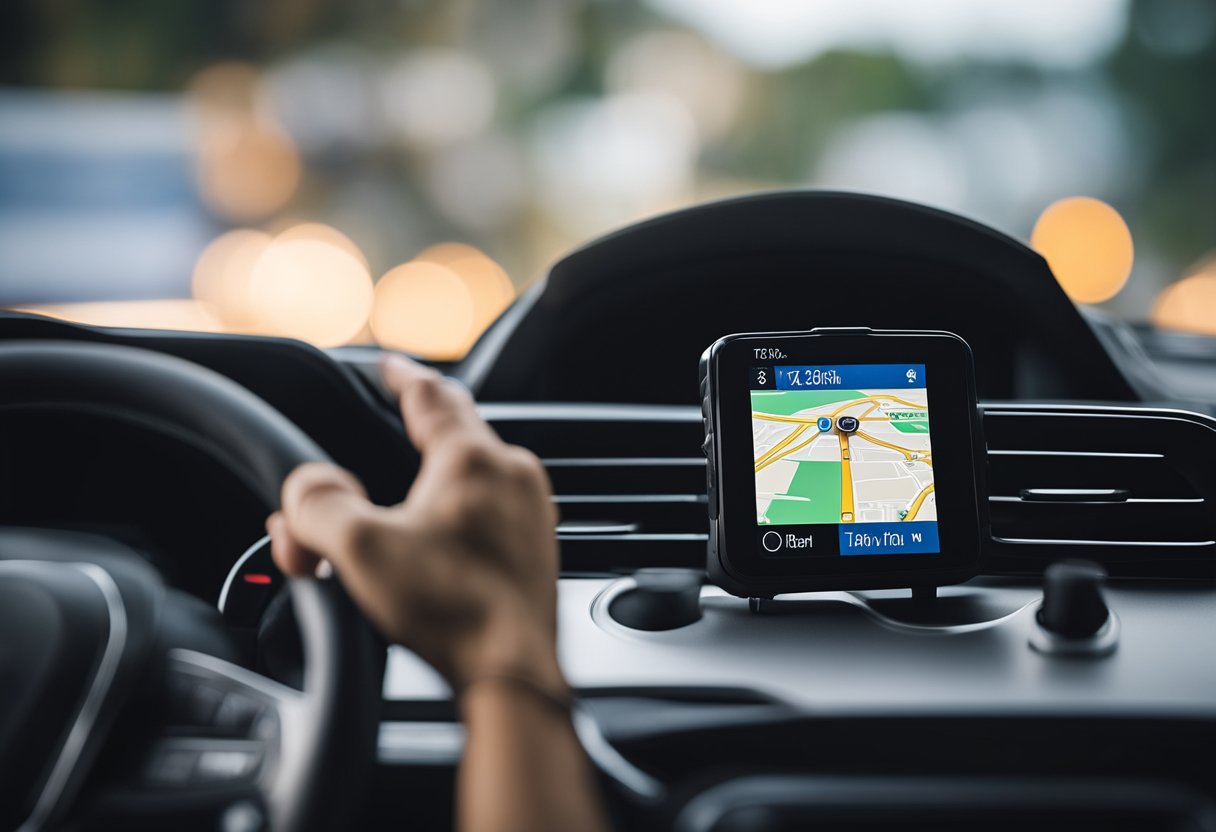How to start saving money
Lorem ipsum dolor sit amet, consectetur adipiscing elit lobortis arcu enim urna adipiscing praesent velit viverra sit semper lorem eu cursus vel hendrerit elementum morbi curabitur etiam nibh justo, lorem aliquet donec sed sit mi dignissim at ante massa mattis.
- Neque sodales ut etiam sit amet nisl purus non tellus orci ac auctor
- Adipiscing elit ut aliquam purus sit amet viverra suspendisse potent
- Mauris commodo quis imperdiet massa tincidunt nunc pulvinar
- Excepteur sint occaecat cupidatat non proident sunt in culpa qui officia
Why it is important to start saving
Vitae congue eu consequat ac felis placerat vestibulum lectus mauris ultrices cursus sit amet dictum sit amet justo donec enim diam porttitor lacus luctus accumsan tortor posuere praesent tristique magna sit amet purus gravida quis blandit turpis.

How much money should I save?
At risus viverra adipiscing at in tellus integer feugiat nisl pretium fusce id velit ut tortor sagittis orci a scelerisque purus semper eget at lectus urna duis convallis. porta nibh venenatis cras sed felis eget neque laoreet suspendisse interdum consectetur libero id faucibus nisl donec pretium vulputate sapien nec sagittis aliquam nunc lobortis mattis aliquam faucibus purus in.
- Neque sodales ut etiam sit amet nisl purus non tellus orci ac auctor
- Adipiscing elit ut aliquam purus sit amet viverra suspendisse potenti
- Mauris commodo quis imperdiet massa tincidunt nunc pulvinar
- Adipiscing elit ut aliquam purus sit amet viverra suspendisse potenti
What percentege of my income should go to savings?
Nisi quis eleifend quam adipiscing vitae aliquet bibendum enim facilisis gravida neque. Velit euismod in pellentesque massa placerat volutpat lacus laoreet non curabitur gravida odio aenean sed adipiscing diam donec adipiscing tristique risus. amet est placerat in egestas erat imperdiet sed euismod nisi.
“Nisi quis eleifend quam adipiscing vitae aliquet bibendum enim facilisis gravida neque velit euismod in pellentesque”
Do you have any comments? Share them with us on social media
Eget lorem dolor sed viverra ipsum nunc aliquet bibendum felis donec et odio pellentesque diam volutpat commodo sed egestas aliquam sem fringilla ut morbi tincidunt augue interdum velit euismod eu tincidunt tortor aliquam nulla facilisi aenean sed adipiscing diam donec adipiscing ut lectus arcu bibendum at varius vel pharetra nibh venenatis cras sed felis eget.
Vehicle trackers in Canada offer peace of mind for vehicle owners.
These devices help monitor vehicle location, improve security, and can even assist in recovery if a vehicle is stolen.
In a country with vast landscapes and diverse driving conditions, having a reliable tracking solution can be essential.

Many Canadians are turning to vehicle trackers for their ability to provide real-time updates and alerts.
These tools can be particularly useful for businesses managing fleets or families wanting to keep tabs on their loved ones.
With various options available, selecting the right vehicle tracker can enhance safety and security for all users.
As technology advances, the features of vehicle trackers continue to grow.
From GPS tracking to integration with mobile apps, the right tracker can cater to specific needs and preferences.
Exploring available options can lead to smarter choices for anyone considering a vehicle tracker in Canada.
Overview of Vehicle Tracking Systems in Canada

Vehicle tracking systems are becoming more common in Canada.
These systems help individuals and businesses keep tabs on their vehicles. They use GPS technology and can provide real-time tracking.
Many tracking devices are available on the market. They vary in size, features, and price.
Some popular features include:
- Real-time location updates
- Speed monitoring
- Geofencing alerts
Businesses often use vehicle trackers to improve efficiency.
This technology helps manage delivery routes and monitor driver behavior.
Individuals may use GPS trackers for personal vehicles. This can help recover stolen cars or monitor teen drivers.
In Canada, privacy laws apply to the use of tracking devices. Users must ensure they follow local regulations when implementing tracking systems.
Types of GPS Trackers Available

There are several types of GPS trackers available in Canada, each designed for different needs.
These devices help monitor vehicle location, speed, and even driving habits. Here are the main types of GPS trackers.
Hardwired Trackers
Hardwired trackers are installed directly into a vehicle's electrical system. This type offers continuous power, eliminating the need for battery replacement. They provide real-time tracking, making them suitable for fleet vehicles and personal cars.
Popular models like the Live Trac G5 Pro and G5 Pro are known for their reliability. These devices can track location and speed precisely. They often come with features such as geo-fencing alerts that notify users if a vehicle leaves a designated area.
Installation requires professional help, as it involves direct wiring into the vehicle. This ensures a secure fit but may not be ideal for short-term users.
Portable Battery-Powered Trackers
Portable battery-powered trackers offer flexibility since they can be placed anywhere in the vehicle. These trackers are easy to install and can be moved from one vehicle to another.
Devices like the Live Trac EZ are popular in this category. They are compact and can operate for weeks on a single charge. Users often appreciate how these trackers function discreetly without needing installation.
While they are great for temporary use or rental vehicles, they may need regular charging. Battery life can vary based on usage and tracking frequency.
OBD II Plug-In Trackers
OBD II plug-in trackers connect to the On-Board Diagnostics (OBD) port of a vehicle, typically found under the steering wheel. Installation is straightforward and usually requires no tools.
These devices are useful for monitoring vehicle performance alongside location. They can track diagnostics, fuel efficiency, and other metrics.
Models such as the Live Trac G5 Pro can be integrated with smartphones, providing real-time updates. They stay powered through the vehicle's electrical system. Users should ensure compatibility with their vehicle's OBD II port before purchase.
Key Features of GPS Tracking Devices

GPS tracking devices offer a range of features that enhance vehicle monitoring. Key elements include real-time position updates, reliable 4G LTE connectivity, and robust battery options, ensuring that users stay informed and connected.
Real-Time Position Updates
Real-time position updates are crucial for effective tracking. These devices use GPS technology to provide precise location data at any moment. This information is sent directly to a mobile app or web interface. Users can see the vehicle's current whereabouts instantly.
Regular updates enable better route management and quicker responses in emergencies. For parents tracking teen drivers or businesses monitoring fleet vehicles, this feature offers peace of mind. Having access to live data can help in making faster decisions, whether for safety or logistical reasons.
4G LTE Connectivity
4G LTE connectivity enhances the performance of GPS tracking devices. Unlike older networks, 4G LTE allows for faster data transmission. This means users get updates with minimal delays, improving the effectiveness of tracking.
Devices with 4G LTE can transmit real-time data over long distances without losing signal strength. This is essential for those who may be operating in remote areas. With consistent connectivity, users can rely on their devices to provide accurate information without interruptions.
Battery Life and Backup Options
Battery life is important for reliable tracking. Many GPS tracking devices offer long battery life, enabling extended use without constant recharging. Users should look for devices that can run for days or weeks on a single charge.
Some devices also provide backup battery options. This feature is useful during power outages or tampering attempts. The device can continue to function, ensuring that users still receive position updates even when energy sources are interrupted.
Internal Battery Backup
Internal battery backup adds an extra layer of security. This feature allows the GPS device to maintain its operation when the main power source is cut off. It ensures that tracking continues seamlessly.
An internal backup battery varies in capacity, but most can last several hours. This is beneficial in situations where a vehicle might be tampered with or stolen. Users can rest assured that they will still receive updates during critical times, enhancing the overall effectiveness of the tracking device.
Pricing Models for Vehicle Trackers

Vehicle trackers in Canada come with different pricing models. Understanding these options helps consumers choose what fits their budget and needs.
One-Time Purchase Costs
A one-time purchase costs cover the price of the device itself. Buyers pay a single fee for the tracker, which can range from $50 to $300, depending on features like GPS accuracy and battery life.
Some trackers offer basic functionality, while others include advanced options such as geofencing and motion alerts. Users must consider installation costs, too. Self-installation is often free, but professional setup may add $100 or more.
This model works well for those who prefer not to commit to ongoing payments. After the up-front cost, no further fees are required unless additional features are needed.
Subscription-Based Services
Subscription-based services require ongoing payments for tracking services. Monthly rates typically range from $10 to $30. These fees often cover data usage, access to software, and customer support.
Many service providers offer different plans based on features. For example, basic plans may only provide location tracking, while premium plans can include real-time updates, historical data, and more.
Users looking for comprehensive tracking solutions might find this model appealing. It allows them to adjust their service based on changing needs without significant up-front investment.
No-Contract Options
No-contract options offer flexibility without long-term commitments. Users pay for the service on a monthly basis, making it easier to cancel as needed. Prices vary but typically fall between $20 and $40 per month.
This model is ideal for individuals who want to track vehicles for a short time, like during a road trip or for temporary vehicle usage.
Depending on the provider, users might still access a range of features, such as alerts and location history. This option combines convenience and control, allowing users to track their vehicle without being locked into a lengthy agreement.
Benefits of Using GPS Trackers

GPS trackers offer several practical advantages for vehicle owners in Canada. They enhance security, improve management for fleets, and increase safety for all kinds of vehicles.
Theft Prevention
GPS trackers play a crucial role in theft prevention. With a tracker installed, vehicle owners can monitor their cars in real time. If a vehicle gets stolen, owners can quickly locate it using the GPS data.
This quick response can help authorities recover the vehicle faster, reducing losses. Many insurance companies also offer discounts for vehicles equipped with GPS trackers. This feature not only provides peace of mind but can result in lower insurance premiums.
Fleet Management Efficiency
For companies with several vehicles, GPS trackers streamline fleet management. These devices allow managers to track locations and routes efficiently. This means they can monitor fuel usage, route optimization, and delivery times.
With accurate data, managers can make informed decisions that save money. They can also assign vehicles based on real-time location, improving overall service. The result is a more efficient operation and better customer satisfaction.
Increased Safety for Passenger Vehicles
GPS trackers enhance safety for passenger vehicles as well. They help keep families safe by allowing parents to track their children’s vehicles. This instant access can ease worries, knowing they can locate loved ones.
Trackers also provide features like alerts for speeding or unsafe driving. This information encourages safer habits. Many trackers include emergency features that can alert authorities in case of an accident, further increasing passenger safety.
Legal Considerations for GPS Tracking in Canada

In Canada, GPS tracking is regulated under various laws. Individuals and businesses must be aware of these laws when using GPS trackers or tracking devices.
Consent is crucial. Generally, you must obtain consent from the person being tracked. This is especially important for personal vehicles. Tracking someone without permission can lead to legal issues.
Privacy laws also play a significant role. The Personal Information Protection and Electronic Documents Act (PIPEDA) protects personal data. Companies must follow these guidelines when collecting and using data from tracking devices.
Employment laws apply when tracking company vehicles. Employers must inform employees about the GPS tracking. Transparency helps avoid disputes and ensures fairness in the workplace.
Key Points:
- Obtain Consent: Always get permission before tracking someone.
- Follow Privacy Laws: Protect personal information in compliance with PIPEDA.
- Notify Employees: Inform staff about tracking in company-owned vehicles.
Businesses must also stay updated on local regulations. Some provinces may have specific rules regarding GPS tracking.
Using GPS tracking devices responsibly is crucial. Keeping legal considerations in mind helps avoid complications while benefiting from tracking technology.
Installation and Maintenance of Vehicle Trackers

Installing vehicle trackers can be done by professionals or as a DIY (Do It Yourself) project. Maintaining these devices ensures they work effectively and provide accurate data.
Professional Installation vs DIY
Choosing between professional installation and DIY depends on several factors.
Professional services often provide expertise. They ensure optimal placement of the GPS tracker for the best signal and performance.
Cost is another key point. Professional installation usually incurs a fee, while DIY can save money. However, doing it yourself requires careful reading of manuals and understanding of the system. A poor installation might lead to device malfunction or inaccurate tracking.
DIY trackers often come with user-friendly tools and guides. Installations can involve placing the tracker under the dashboard or hidden in the trunk.
Routine Maintenance Tips
Routine maintenance helps keep tracking devices functioning at their best.
Regularly check the device's battery. A low battery can affect its accuracy.
Weekly or monthly inspections can help. Look for any signs of damage or tampering. Keeping the tracker clean and securely attached is important too.
Updating software and firmware is another key maintenance task. Many GPS trackers require updates to improve performance and security.
Using a reliable tracking app also helps in monitoring data. Ensure that it is frequently updated to receive new features and enhancements. Making these maintenance efforts part of a routine can help ensure a long-lasting and effective tracking experience.
Choosing the Right Vehicle Tracker

When selecting a vehicle tracker, it’s important to identify specific needs, compare different options, and consider user experiences. Each aspect helps in making an informed decision tailored to vehicle security and tracking efficiency.
Assessing Your Tracking Needs
Before choosing a vehicle tracker, it is essential to evaluate personal requirements.
Consider whether continuous real-time tracking is necessary or if regular updates are sufficient. GPS trackers like the G5 Pro provide live tracking, while other options may offer scheduled updates.
Next, think about the vehicle's usage. For commercial vehicles, a robust tracking device can help monitor routes and fuel use. Personal use might prioritize alerts for theft or location history. Understanding these needs guides the selection of a device that fits lifestyle and safety goals.
Comparing Different Models and Features
Various tracking devices offer unique features.
For instance, the Live Trac EZ is known for its user-friendly interface and reliable accuracy. Key features to consider include battery life, size, and weather resistance.
Some trackers offer additional capabilities like geofencing, which alerts users when a vehicle leaves a designated area. Others might include diagnostics that track vehicle health. Compare models to see which features serve personal or business needs best.
FeatureG5 ProLive Trac EZReal-Time TrackingYesYesGeofencingYesNoBattery LifeUp to 2 weeksUp to 1 weekSizeCompactSlightly larger
Reading Customer Reviews and Testimonials
Customer feedback offers valuable insights into the performance of vehicle trackers.
Seek reviews that discuss reliability, customer service, and ease of use.
Users often share experiences about installation processes, app functionality, and overall satisfaction.
Pay attention to any recurring complaints or praises. A tracker might have excellent features but could fall short in actual use.
Researching multiple platforms for reviews ensures a well-rounded view of the product.
Look for testimonials that match personal tracking needs for better assurance in the selection process.



